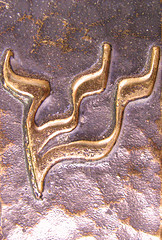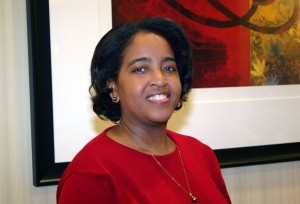Courteous Cad
January 29th, 2010 It is time for a FIRST Wild Card Tour book review! If you wish to join the FIRST blog alliance, just click the button. We are a group of reviewers who tour Christian books. A Wild Card post includes a brief bio of the author and a full chapter from each book toured. The reason it is called a FIRST Wild Card Tour is that you never know if the book will be fiction, non~fiction, for young, or for old…or for somewhere in between! Enjoy your free peek into the book!
It is time for a FIRST Wild Card Tour book review! If you wish to join the FIRST blog alliance, just click the button. We are a group of reviewers who tour Christian books. A Wild Card post includes a brief bio of the author and a full chapter from each book toured. The reason it is called a FIRST Wild Card Tour is that you never know if the book will be fiction, non~fiction, for young, or for old…or for somewhere in between! Enjoy your free peek into the book!
You never know when I might play a wild card on you!
and the book:
Tyndale House Publishers, Inc. (December 3, 2009)
***Special thanks to Christy Wong of Tyndale House Publishers, Inc. for sending me a review copy.***
 Catherine Palmer lives in Atlanta with her husband, Tim, where they serve as missionaries in a refugee community. They have two grown sons. She is a graduate of Southwest Baptist University and holds a master’s degree in English from Baylor University. Her first book was published in 1988. Since then, she has published more than 50 novels, many of them national best sellers. Catherine has won numerous awards for her writing, including the Christy Award—the highest honor in Christian fiction—and the Romantic Times BookClub Career Achievement Award for inspirational fiction. Total sales of her novels number more than 2 million copies.
Catherine Palmer lives in Atlanta with her husband, Tim, where they serve as missionaries in a refugee community. They have two grown sons. She is a graduate of Southwest Baptist University and holds a master’s degree in English from Baylor University. Her first book was published in 1988. Since then, she has published more than 50 novels, many of them national best sellers. Catherine has won numerous awards for her writing, including the Christy Award—the highest honor in Christian fiction—and the Romantic Times BookClub Career Achievement Award for inspirational fiction. Total sales of her novels number more than 2 million copies.
Visit the author’s website.
Product Details:
List Price: $12.99
Paperback: 400 pages
Publisher: Tyndale House Publishers, Inc. (December 3, 2009)
Language: English
ISBN-10: 0842375554
ISBN-13: 978-0842375559
AND NOW…THE FIRST CHAPTER:
1817
“I shall never marry,” Prudence Watson declared to her sister as they crossed a busy Yorkshire street. “Men are cads, all of them. They toy with our hearts. Then they brush us aside as if we were no more than a crumb of cake at teatime. A passing fancy. A sweet morsel enjoyed for a moment and soon forgotten.”
“Enough, Prudence,” her sister pleaded. “You make me quite hungry, and you know we are late to tea.”
“Hungry?” A glance revealed the twitch of mirth on Mary’s lips. Prudence frowned. “You think me silly.”
“Dearest Pru, you are silly.” Mary raised her wool collar against the cold, misty drizzle. “One look at you announces it to all the world. You’re far too curly-haired, pink-cheeked, and blue-eyed to be taken seriously.”
“I cannot help my cheeks and curls, nor have they anything to do with my resolve to remain unmarried.”
“But they have everything to do with the throng of eligible men clamoring to fill your dance card at every ball. Your suitors send flowers and ask you to walk in the gardens. On the days you take callers, they stand elbow to elbow in the foyer. It is really too much. Surely one of them must be rewarded with your hand.”
“No,” Prudence vowed. “I shall not marry. I intend to follow the example of my friend Betsy.”
“Elizabeth Fry is long wed and the mother of too many children to count.”
“But she obeys a calling far higher than matrimony.”
“Rushing in and out of prisons with blankets and porridge? Is that your friend’s high calling?”
“Indeed it is, Mary. Betsy is a crusader. With God’s help, she intends to better the lives of the poor women in Newgate.”
“Better the lives of soiled doves, pickpockets, and tavern maids?” Mary scoffed. “I should like to see that.”
“And so you will, for I have no doubt of Betsy’s success. I shall succeed, too, when God reveals my mission. I mean to be an advocate for the downtrodden. I shall champion those less fortunate than I.”
“You are hardly fortunate yourself, Pru. You would do better to marry a rich man and redeem the world by bringing up moral, godly, well-behaved children.”
“Do not continue to press me on that issue, Mary, I beg you. My mind is set. I have loved and lost. I cannot bear another agony so great.”
“Do you refer to that man more than twice your age? the Tiverton blacksmith? Mr. . . . Mr. Walker?”
Prudence tried to ignore the disdain in Mary’s voice. They were nearing the inn at which they had taken lodging in the town of Otley. Their eldest sister, Sarah, had prescribed a tour of the north country, declaring Yorkshire’s wild beauty the perfect antidote to downtrodden spirits. Thus far, Prudence reflected, the journey had not achieved its aim.
Now, Mary had raised again the subject of great torment to Prudence. It was almost as though she enjoyed mocking her younger sister’s passion for a man she could never wed. Whatever anyone thought of him, Prudence decided, she would defend her love with valor and tenacity.
“Mr. Walker is a gentleman,” she insisted. “A gentleman of the first order.”
“Nonsense,” Mary retorted. “He has no title, no land, no home, no education, nothing. How can you call him a gentleman?”
“Of course he has no title–he is an American!” Annoyed, Prudence lifted her skirts as she approached a large puddle in the street. “Americans have no peerage. By law, they are all equal.”
“Equally common. Equally ordinary. Equally low.” Mary rolled her eyes. “Honestly, Pru, you can do far better than Mr. Walker. Sarah and I hold the opinion that her nephew, Henry Carlyle, Lord Delacroix, would suit you very well indeed. She writes that he is returned from India much improved from their last acquaintance. Delacroix owns a fine home in London and another in the country. He is wealthy, handsome, and titled. In short, the perfect catch. Leave everything to your sisters, Pru. We shall make it all come about.”
“You will do nothing of the sort! Delacroix is a foolish, reckless cad. I would not marry him if he were the last man in England.”
Annoyed, Prudence stepped onto a narrow plank, a makeshift bridge someone had laid across the puddle. Attempting to steady herself, she did not notice a ragged boy dart from an alleyway. He splashed into the muddy water, snatched the velvet reticule at her waist, and fled.
“Oh!” she cried out.
The plank tilted. Prudence tipped. Her balance shifted.
In a pouf of white petticoats, she tottered backward until she could do nothing but unceremoniously seat herself in the center of the dirty pool. Mud splattered across her blue cape and pink skirt as she sprawled out, legs askew and one slipper floating in the muck.
“Dear lady!” A man knelt beside her. “Are you injured? Please allow me to assist you.”
She looked into eyes the color of warm treacle. A tumble of dark curls fell over his brow. Angled cheekbones were echoed in the squared jut of his jaw. It was the face of an angel. Her guardian angel.
“My bag,” she sputtered. “The boy took it.”
“My man has gone after him. Have no fear on that account. But what of you? Can you stand? May I not help you?”
He held out a hand sheathed in a brown kid glove. Prudence reached for it, but Mary intervened.
“You are mud from head to toe, Pru!” She blocked the stranger’s hand. “You must try to get up on your own. We are near the inn, and we shall find you a clean gown at once.”
“Hang my gown!” Prudence retorted. “Give me your hand, sister, or allow this gentleman to aid me. My entire . . . undercarriage is wet.”
At this, the man’s lips curved into a grin. “Do accept my offer of assistance, dear lady, and I shall wrap my cloak about you . . . you and your damp undercarriage.”
The motley crowd gathered on the street were laughing and elbowing one another at the sight of a fine lady seated in a puddle. Prudence had endured quite enough derision and mockery for one day. She set her muddy hand in the gentleman’s palm. He slipped his free hand under her arm and helped her rise. Before she could bemoan her disheveled state, he swept the thick wool cloak from his shoulders and laid it across her own.
“My name is Sherbourne,” he said as he led her toward the inn. “William Sherbourne of Otley.”
“I am Prudence Watson. Of London.”
Utterly miserable, she realized a truth far worse than a muddy gown, a missing slipper, and a tender undercarriage. She was crying. Crying first because she had been assaulted. Second because her bag was stolen away. Third because she was covered in cold, sticky mud. Fourth and every other number because Mr. Walker had abandoned her.
He had declared he loved Prudence too much to make her his wife. He kissed her hand. He bade her farewell. And she had neither seen nor heard from him since.
“You will catch pneumonia,” Mary cried as she hastened ahead of them to open the inn’s door. “Oh, Pru, you will have a fever by sunset and we shall bleed you and care for you and you will die anyway, just like my dear Mr. Heathhill, who left me a widow.”
“Upon my word, madam,” William spoke up. “I would never lay out such a fate for a woman so young and lovely. Miss Watson is hardly bound for an early grave. Do refrain from such predictions, I beg you.”
“Oh, Mary, his rose was in my reticule,” Prudence moaned. “The rose Mr. Walker gave me. I pressed it and vowed to keep it forever. And now it is lost.”
“Your husband?” William asked. He helped her ascend the stairs and escorted her into the inn. “Give me his name, and I shall alert him to your distress.”
“She has no husband,” Mary informed him. “We are both unmarried, for I am recently a widow.”
“Do accept my sincere condolences.”
“Thank you, sir. But we have not been properly introduced. I am Mrs. John Heathhill of Cranleigh Crescent in London.”
“William Sherbourne of Otley, at your service.” He made a crisp bow. “You are Miss Watson’s sister?”
“Yes,” Prudence cut in, “and if she will stop chattering for once, I shall welcome her attention. Mary, come with me, for I am shivering.”
“Heavens! That is exactly how the influenza began with my dear late husband!” Mary took her sister’s arm and stepped toward the narrow staircase. “Thank you, Mr. Sherbourne. We are in your debt.”
“Think nothing of it,” he replied. “I wish you a speedy recovery and excellent health, Miss Watson. Good afternoon, ladies.”
“Such a gentleman!” Mary exclaimed as she accompanied her sister up the stairs and into their suite. “So very chivalrous. I wager he is married. Even so, I should be happy to see him again. You have his cloak still, and on that account we are compelled to call on him. What good fortune! He is well mannered indeed. And you must agree he is terribly handsome.”
Prudence was in no humor to discuss anyone’s merits. “Find my blue gown, Mary. The one with roses. And ask the maids to bring hot water. Hot, mind you. I cannot bear another drop of cold water. I am quite chilled to the bone.”
While Mary gave instructions to the inn’s staff, Prudence began removing her sodden gown. She shuddered at the memory of that boy snatching her reticule. Thank heaven for Mr. Sherbourne’s kindness. But Mr. Walker’s rose was gone now, just as the man himself had disappeared from her life.
“Did you like him?” Mary asked as she sorted through the gowns in her sister’s trunk. “I thought he had nice eyes. Very brown. His smile delighted me, too. He was uncommonly tall, yet his bearing could not have been more regal. If he is yet unmarried, I think him just the sort of man to make you a good husband.”
“A husband?” Prudence could hardly believe it. “You were matchmaking while I sat in the mud? Honestly, Mary, you should wed Mr. Sherbourne yourself.”
“Now you tease me. You know my mourning is not complete. Even if it were, I am certain I shall never find another man as good to me as my dear late Mr. Heathhill.”
“If you will not marry, why must you make such valiant efforts to force me into that state? I have declared my intention never to wed. You and Sarah must respect that decision.”
“Our duty to you supersedes all your ridiculous notions, Pru. You have no home and no money. Society accepts you only because of your excellent connections.”
“You refer to yourself, of course. And Sarah. With such superior sisters to guide me, I can never go wrong.”
When the maids entered the room with pitchers of steaming water, Prudence gladly escaped her hovering sister. She loved Mary well enough, but the death of Mr. Heathhill had cast the poor woman into a misery that nothing could erase. Mary’s baby daughter resided in the eager arms of doting grandparents while she was away, but she missed the child dreadfully. With both sisters mourning lost love, their holiday in the north had proven as melancholy as the misty moors, glassy lakes, and windswept dells of Yorkshire.
Not even a warm bath and clean, dry garments could stop Prudence from shivering. Mary had gone to the inn’s gathering room with the hope of ordering tea. The thought of a cup of tea and a crackling blaze on the hearth sent Prudence hurrying down after her sister.
Amid clusters of chatting guests, she spotted Mary at a table near the fire. Two maids were laying out a hearty tea–a spread of currant cake, warm scones, cold meats, jams, and marmalade. A round-bellied brown teapot sent up a curl of steam.
Prudence chose a chair while Mary gloomily cut the cake and served it. “Not enough currants,” she decreed. “And very crumbly.”
“I have been thinking about your observations on my situation in life,” Prudence said. “I see you cannot help but compare my lot to that of my siblings. Thanks to our late father, Sarah has more money than she wants. You inherited your husband’s estate and thus have no worry about the future. But I? I am to be pitied. You think me poor.”
“You are poor,” Mary corrected her. “Sarah is not only rich, but her place in society was secured forever by her marriage into the Delacroix family. She is terribly well connected. Surely you read Miss Pickworth’s column in last week’s issue of The Tattler. She reported that Sarah’s new husband is likely to be awarded a title.”
“Miss Pickworth, Miss Pickworth. Do you read The Tattler day and night, Mary? One might suppose Miss Pickworth to be your dearest friend–and not some anonymous gossip whose reports keep society in a flutter.”
“Miss Pickworth keeps society abreast of important news.” Mary poured two cups of tea. “I value her advice, and I welcome her information.”
“Unfounded rumors and hints of scandal,” Prudence retorted. “Nothing but tittle-tattle.”
“Oh, stir your tea, Pru.”
For a moment, both sisters tended to their cups. But Prudence at last broached a subject she had been considering for some time.
“I am ready to go home,” she told her sister. “I want to see Sarah. I miss my friends, Betsy most of all. Anne, you know, is dearer still to me, but she is rarely at home. I do not mind, really, for the thought of Anne only reminds me of Mr. Walker.”
“Please forgive my interruption.”
A man’s deep voice startled Prudence. She looked up to find William Sherbourne standing at their table. He was all she had remembered, and more. His shoulders were impossibly broad, his hair the exact color of strong tea, his hands so large they would circle a woman’s waist without difficulty. She had not noticed how fine he looked in his tall black riding boots and coat. But now she did, and she sat up straighter.
“May I trouble you ladies for a moment?” he asked.
“Mr. Sherbourne, how delightful to see you again.” Mary’s words dripped honey. “Do join us for tea, won’t you?”
“Thank you, but I fear I cannot. Duty calls.” He turned his deep brown eyes on Prudence. “Miss Watson, my man retrieved your bag. I trust nothing is amiss.”
He held out the velvet reticule she had been carrying. So delighted she could not speak, Prudence took it and loosened the silk drawstrings. After a moment’s search, she located her small leather-bound journal and opened it. From its pages, the dried blossom fluttered onto her lap.
“Sister, have you nothing to say to Mr. Sherbourne?” Mary asked. “Perhaps you would like to thank him for his kindness?”
“Yes, of course,” Prudence said, tucking the rose and notebook back into her reticule and rising from her chair. “I am grateful to you, Mr. Sherbourne. First you rescued me from the street, and now you have returned my bag. You are very gallant.”
He laughed. “Gallant, am I? I fear there are many who would disagree with you. But perhaps you would honor me with the favor of your company for a moment. There is someone I wish you to meet.”
Prudence glanced at her sister, who was pretending not to notice anything but the few currants in her tea cake.
“Do run along, Pru,” Mary said. “I am quite content to take my tea and await your return.”
William held out his arm, and Prudence slipped her hand around it. “I hope you do not think me forward in my request,” he remarked. “You know nothing of my character, yet you accompany me willingly.”
“I have called you gallant,” she replied. “Was I mistaken?”
“Greatly.” His brown eyes twinkled as he escorted her toward the door of the inn. “I am so far from gallant that you would do well never to speak to me again. But it is too late, for I have taken you captive. You are under my spell, and I may do with you as I wish.”
Uncertain, Prudence studied his face. “What is it you wish, sir?”
“Ah, but if I reveal my dark schemes, the spell will be broken. I would have you think me courteous. Noble. Kind.”
“You tease me now. Are you not a gentleman?”
“Quite the opposite. I am, in fact, a rogue. A rogue of the worst sort, and never to be trusted. I rescue ladies from puddles only on Tuesdays. The remainder of the week, I am contemptible. But look, here is my man with the scalawag who stole your bag. And with them stands a true gentleman, one who wishes to know you.”
Feeling slightly off-kilter, Prudence turned her attention to a liveried footman just inside the inn, near the door. In his right hand, he clasped the ragged collar of a young boy whose dirty face wore a sneer. Beside them stood a man so like William Sherbourne in appearance that she thought they must be twins.
“Randolph Sherbourne, eldest of three brothers,” William announced. “Randolph, may I introduce Miss Prudence Watson?”
“I am delighted to make your acquaintance, madam.” He made her a genteel bow.
She returned a somewhat wobbly curtsy. It was one thing to meet one man of stature, elegance, and wit, but quite another to find herself in the presence of two such men.
“Miss Watson, you are as lovely as my brother reported,” Randolph said. “His accounts are so often exaggerated that I give them little notice. But in your case, he perhaps did not do you justice.”
“I believe I called her an angel, Randolph. There can be no superlative more flattering. Yet I confess I did struggle to give an adequate account of Miss Watson’s charms.”
“Please, gentlemen,” Prudence spoke up at last. She had heard too much already. These brothers were men like all the rest, stumbling over themselves to impress and flatter. “My tea awaits, and I must hasten to thank your footman for retrieving my reticule.”
“But of course,” William agreed. “Harris, do relate to Miss Watson your adventures of the afternoon.”
The footman bowed. “I pursued this boy down an alley and over a fence, madam. In short order, I captured him and retrieved your bag.”
“Thank you, Harris.” Prudence favored him with a smile. “I am most grateful.”
“What shall we do with the vile offender?” William asked her. “I have considered the gallows, but his neck is too thin to serve that purpose. The rack might be useful, but he has already surrendered your reticule, and we need no further information from him. Gaol, do you think? Or should we feed him to wild hogs?”
Prudence pursed her lips to keep her expression stern. “I favor bears,” she declared. “They are larger than hogs and make quick work of their prey.”
The boy let out a strangled squawk. “Please, ma’am, I’m sorry for what I done. I’ll never do it again, I swear.”
She bent to study his face and noted freckles beneath the dirt. “What is your name, young man? And how old are you?”
“I’m ten,” he said. “My name is Tom Smith.”
“Tom Smith,” she repeated. “Does your father own a smithy?”
“No, ma’am. My father be dead these three years together.”
“I am sorry to hear it. Tell me, Tom, do you believe your father would be pleased that you have taken to stealing?”
“He would know why I done it, for he would see Davy’s sufferin’ and wish to ease it–same as all of us.”
“And who is Davy?” she asked.
“My brother. We’re piecers, ma’am. And all our sisters be scavengers. Davy was crippled in the mill.” Tom’s large gray eyes fastened on William Sherbourne as he pointed a thin finger. “His mill.”
“Impossible,” William said. “My family built our mill, in fact, with the express purpose of providing honest and humane labor for the villagers of Otley.”
“Take this, Tom.” Prudence pressed a coin into the boy’s grimy hand. “Please use it for your brother’s care.”
“A shillin’?” He gaped at her.
“Yes. But you must promise to turn from crime and always be a good boy.”
“I promise, ma’am. With all my heart.”
“Run along, then.” She smiled as he pushed the shilling deep into the pocket of his trousers.
“You are an angel,” Tom said. “Truly, you are.”
With a final look back at her, he slipped out of the footman’s grasp and flew through the doorway and down the street.
“Now that is an interesting approach to deterring misbehavior,” William addressed his brother. “Catch a thief, then pay him. What do you think, Randolph? Shall you recommend it to Parliament on your next appointment in the House of Lords? Perhaps it might be made a law.”
Prudence bristled. “I gave the shilling to aid Tom Smith’s injured brother. Perhaps you should recommend that to Parliament. I have heard much about the abhorrent treatment of children who work in the mills.”
Randolph Sherbourne spoke up. “My family’s worsted mill, Miss Watson, is nothing like those factories of ill repute.”
“I believe young Davy Smith might argue the point. His brother blames your mill for the injury.”
“Do you take the word of a pickpocket over that of a gentleman?” William asked her.
“I see you call yourself a gentleman when the situation requires one, Mr. Sherbourne. Only moments ago, you were a rogue.”
“I fear William’s first account of his character was accurate,” Randolph told her. “We have done our best to redeem him, but alas, our efforts always come to naught. He is bad through and through, a villain with a black heart and no soul whatever.”
“As wicked as that, is he?” Prudence suddenly found it difficult to fan her flame of moral outrage. “Then I am glad our acquaintance will be of short duration. My sister and I soon end our tour of the north country. Perhaps as early as tomorrow morning we shall set off for London.”
“But I have hardly begun to abuse William,” Randolph protested. “My brother deserves much worse, and you must know the whole truth about him. My wife and I should enjoy the honor of your company at dinner today. You and your sister are welcome at Thorne Lodge.”
“You will never persuade Miss Watson to linger in Yorkshire,” William assured his brother. “Her heart hastens her toward a gentleman who has been so fortunate as to win the love of an angel.”
“Ah, you are engaged, Miss Watson,” Randolph said. “I should very much like to congratulate the man who prevailed over all other suitors.”
“His name is Walker,” William informed him. “With a single red rose, he secured his triumph.”
“You assume too much, sir. I am not engaged.” Prudence looked away, afraid the men might see her distress and mock it. “Marriage is not the object of my heart’s desire.”
“Yet your pain upon losing Mr. Walker’s rose was great indeed,” William observed. “What can have parted you from him?”
“Upon my honor, Mr. Sherbourne,” Prudence snapped, “I think you very rude to intrude on my privacy with such a question.”
“Yes, but rudeness is the hallmark of my character. I give offense wherever I go.”
“Indeed,” Randolph agreed. “William is always impolite and discourteous. I should urge you to ignore him, Miss Watson. But in this case, I am as curious as he. How dare anyone object to a gentleman of whom you approve so heartily?”
“Mr. Walker is an American,” she told the brothers. “He is a blacksmith. And poor. With so many disadvantages, society decreed a match between us unconscionable. We were parted, and I do not know where he has gone.”
“An American, did you say?” William asked. “Is he an older man? rather tall with a stocky build? black hair?”
“Mr. Walker’s ancestors were native to America,” Prudence said. “Of the Osage tribe. He is more than twice my age. Sir, do you know him?”
“I hired the man three months ago. He is the blacksmith at my mill.”
Prudence gasped. “Mr. Walker is here? in Otley?”
“Perhaps she will not be leaving Yorkshire quite so soon,” Randolph commented. “I believe Miss Watson has found a reason to stay.”
“She may find reason to go when she learns that Mr. Walker is soon to be married.” William’s brown eyes softened. “I am sorry to bear unhappy tidings. Dear lady, you look quite pale. May I bring you a chair?”
“No,” she said, holding up a hand. “I am unmoved by your news. It is right and proper that Mr. Walker has found a wife. I am very happy for him. And now if you will both excuse me, my sister has long been wishing for my company.”
After giving the briefest of curtsies, she turned away and made for the fire as swiftly as her feet would fly. She would not cry. She would not reveal the slightest emotion. No one must guess she felt anything but contentment and perfect ease.
“Whatever is the matter with you?” Mary asked as Prudence sank into her chair. “You look as if you might faint dead away!”
“Mr. Walker is here,” Prudence choked out. “In Yorkshire. In this very town. And he is engaged to be married.”
Mary offered her handkerchief. “Shocking,” she whispered. “Shocking and sad. But dry your eyes before you make a scene, Pru, for I have just had the most wonderful news from the lady at the next table. Do you not wish to hear it?”
Prudence could barely form words. “No, Mary. I am quite undone.”
“You must hear it anyway, for this news concerns you.” Mary leaned across the table and lowered her voice. “Mr. William Sherbourne, who rescued you from the puddle and has paid you such extraordinary attention, is a proper gentleman with excellent connections. His eldest brother is a baron and owns a great estate in Yorkshire. His second brother is a clergyman who lives in India. He himself is a most distinguished officer in the Royal Navy, and he has just returned from sea after many months fighting the Americans . . . or was it the French? I can never recall.”
“Nor can I,” Prudence murmured.
“Never mind, because he has quit the Navy and is now settled in Otley for good. He owns a large worsted mill and is worth five thousand pounds a year. Think of it–five thousand a year! And best of all–he is unmarried. Quite unattached. How wonderful for you!”
Prudence swallowed against the growing lump in her throat. “I do not care if he is worth ten thousand a year and owns five worsted mills, Mary. I do not want him. I do not want him at all.”
“Quick, dry your eyes, Pru, for here he comes. And his brother. You may win his heart yet, and what happiness awaits you then. Oh, heavens, why did I not wear my good bonnet?”












